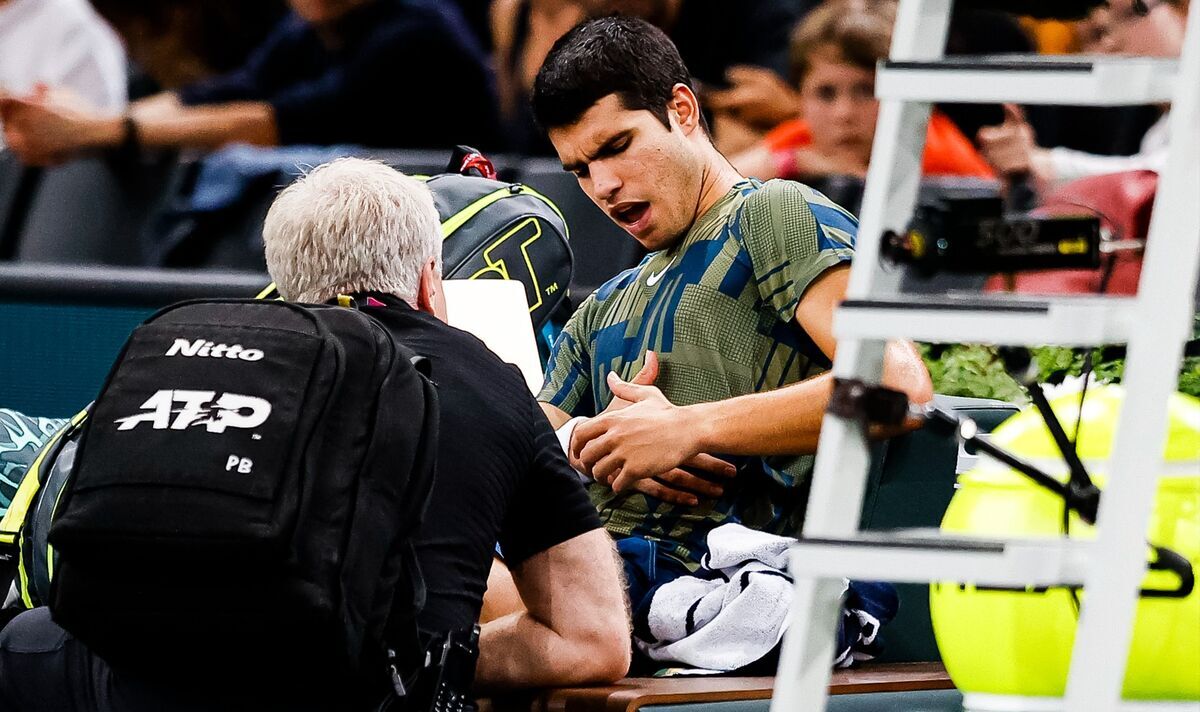The tennis world often anticipates deep runs and dominant performances from its reigning World No. 1. Yet, for Carlos Alcaraz, the Paris Masters delivered a surprising and, by his own admission, highly forgettable early exit. The young Spaniard`s candid remarks post-match offer a rare glimpse into a champion`s mind when faced with an unequivocally poor showing.
A Shocking First-Round Defeat
In a tournament where expectations for the top seed are perennially high, Alcaraz`s journey in Paris was unceremoniously cut short by Britain`s Cameron Norrie. The final score — 6/4, 3/6, 4/6 — belies the stark assessment Alcaraz delivered to the press following his defeat. It wasn`t merely a loss; it was, in his words, “one of the worst games of the year.” Such a blunt evaluation from a player who has consistently performed at an elite level underscores the depth of his dissatisfaction.
The “Forget It” Strategy: An Unconventional Approach
Typically, athletes, especially those at the pinnacle of their sport, are wired to dissect and analyze every performance, good or bad, to extract lessons for future improvement. Not so for Alcaraz on this particular occasion. His immediate post-match declaration was unequivocal: “This match I will not rewatch, I will try to forget it.”
This approach might raise an eyebrow or two. Forgetting a defeat, rather than learning from it, seems counter-intuitive. However, perhaps there`s a certain wisdom in recognizing when a performance is so far off the mark that dwelling on it becomes counterproductive. Sometimes, a clean slate is the most effective reset button.
Technical Missteps and Court Conditions
Alcaraz attributed a significant portion of his struggles to a fundamental miscalculation in his gameplay strategy, specifically noting its incompatibility with the court conditions. “I chose the wrong game strategy for such a slow court,” he explained. This technical insight suggests that his issues weren`t merely about execution, but about a foundational plan that failed to adapt to the environment. Slow indoor hard courts can neutralize some of a player`s natural advantages, demanding greater patience and different shot selections – elements Alcaraz felt he hadn`t adequately addressed.
Physical and Mental State: A Curious Discrepancy
What makes this defeat particularly intriguing is Alcaraz`s personal assessment of his physical and mental well-being. Despite the on-court struggles, he affirmed, “I had energy, I felt I could play. This year I felt great – physically and mentally.” He even mentioned enjoying time at home, feeling relaxed. This stands in stark contrast to the common narrative of fatigue or burnout often cited by players after a grueling season. It suggests that his performance dip wasn`t rooted in a lack of readiness or exhaustion, but perhaps a singular tactical error compounded by the conditions and a formidable opponent.
The Paris Enigma and Future Prospects
Interestingly, Alcaraz acknowledged a recurring struggle at this specific tournament. “It`s hard for me to play well at this tournament,” he stated. This isn`t the first time an elite player has found a particular venue or surface challenging, regardless of their overall prowess. Some courts simply don`t align with a player`s natural game or psychological comfort.
While this early exit is undoubtedly a blot on an otherwise spectacular year, it’s unlikely to derail the young Spaniard`s trajectory. His confidence, even in defeat, remains palpable, as evidenced by his closing remarks: “I hope I can fix everything.” For a player who has demonstrated remarkable resilience and a steep learning curve throughout his career, this Paris Masters anomaly might well be just that – an anomaly, quickly forgotten as he shifts his focus to future challenges and continued dominance.

